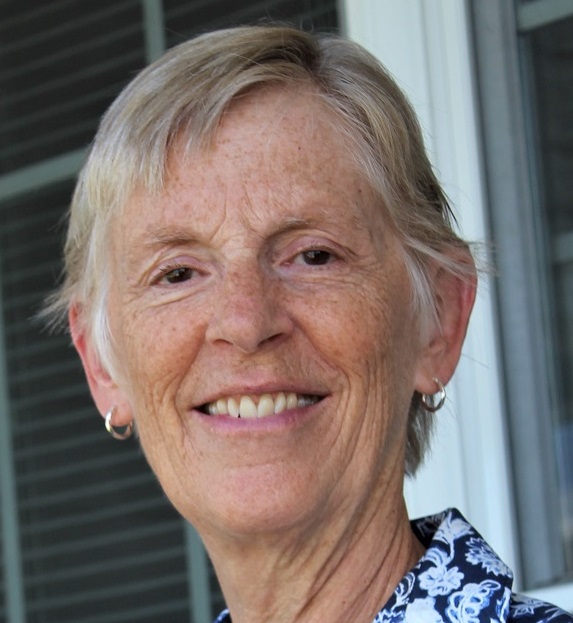 Nancy Heisey lives in Harrisonburg, Virginia, and is a member of Community Mennonite Church. She was on the faculty of Eastern Mennonite University for 23 years. These days, the lives and commitments of her granddaughters and her students are foremost in her heart.
Nancy Heisey lives in Harrisonburg, Virginia, and is a member of Community Mennonite Church. She was on the faculty of Eastern Mennonite University for 23 years. These days, the lives and commitments of her granddaughters and her students are foremost in her heart.
___________________________________
For decades, neither I nor many other thoughtful church folks have had to proffer public opinions, or even think too hard privately, about abortion. But the upheaval surrounding the Supreme Court’s overturning of the 1973 Roe v. Wade decision aroused in me, as in millions of others, a wave of strong emotions and confused thoughts. I could spend pages recounting my teenage fears, shaped during church youth group, that I might get pregnant. I remember when a friend had to get up in front of the church and confess her “sin” when she became pregnant — her partner, who attended a different church, was nowhere in sight. I remember my high school physical education teacher talking frankly about her struggles, as she tried out something new: birth control pills. And I remembered talking to a few close friends who had had abortions, mostly after the Roe ruling. Still, one of them was driven, by her parents, to a different state to have the procedure done. All of them admitted complex and painful experiences and memories, while believing that they had made the right choice.
I know that, in 2003, on the 30th anniversary of the Roe decision, Mennonite Church USA (MC USA) adopted a statement on abortion. But do not recall ever discussing this statement with siblings in my congregation. Now, as a woman who has never been pregnant and who is well past child-bearing age, I am tempted to say that the current furor doesn’t need my engagement. But, no! The grinding in my gut and the turmoil in my spirit push me to join in conversations about how we, as Christians within the Mennonite faith community, live in our current context.
Journalists are writing as if there is a deep and unbreachable gulf in U.S. society over abortion access, yet polling indicates that most Americans have more nuanced and case-specific views about responding to crisis pregnancies. Among Christians, this spectrum of views sometimes references Scripture.
Across two thousand years of Judeo-Christian biblical study, serious readers have differed on exactly how the gift of life created by God should be acknowledged and honored.
Biblical writers lived in cultures that were both patriarchal and misogynistic. The faith and experiences of women can be heard within the Bible’s pages, but this often requires reading against the grain. As a historian, I am aware of clear evidence that ancient Jews and Christians opposed infanticide and abandonment, but the counsel about abortion is less obvious. Some fifty years ago, I walked through a cemetery with my missionary pastor father, as he explained his view that an “unquickened” fetus was not yet a person.
For U.S. Mennonites, as well as for other Christian groups, we must acknowledge a new problem created by the Supreme Court ruling, which sends abortion questions back to the states. Some of us live in states that are already severely restricting or abolishing abortion options, while others of us are residents of states that promise to continue to allow abortions and to assist those who cannot obtain legal abortions in their home states. How are we to be the church? My immediate urge to shout, “My body, my choice!” as a starting point is not, I think, adequate for what we must discern. We must begin by paying attention to the data: Maternal mortality rates in the United States are significantly higher than in other wealthy countries, and in recent years, U.S. residents seeking abortions have increasingly been those whose economic and racial status make the struggle of adding children to their family insurmountable. These issues are referenced in the 20-year-old MC USA statement; I urge us all to begin with a careful and prayerful re-reading of that text.
At the top of our list, I urge us to care for the people within and around our faith communities who are caught in crisis pregnancies.
We are not called to examine them but to examine ourselves. We must discern how really ready we are to walk with them over the long term, whatever their choices. We must support and pray for them, as they determine what is most life-giving for them and their families; we must prepare to offer options and refuse to manipulate.
I know we do not all agree on the broad policy and political questions our society is facing. I think some MC USA members are called to support those seeking access to abortions; it may be that some of us will even commit civil disobedience in this dangerous new reality. I know others will continue to throw themselves into crisis pregnancy and adoption support systems. I pray that all we do will be done in love; I hope that, in our congregations, we will surround those closest to these issues with compassion and caring discernment.
Always, let us remind one another that the God who created us, revealed in Jesus Christ, is “merciful and gracious, slow to anger and abounding in steadfast love. … For as the heavens are high above the earth, so great is [God’s] steadfast love toward those who fear [God]…. For [God] knows how we were made; [God] remembers that we are dust” (Psalm 103:8-14 NRSV).
The views and opinions expressed in this blog belong to the author and are not intended to represent the views of the MC USA Executive Board or staff.
Interested in submitting a blog on this topic for Menno Snapshots? Please see our blog guidelines here.

